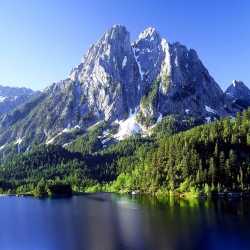
A warming climate is melting the glaciers of Mount Everest, shrinking the frozen cloak of Earth’s highest peak by 13% in the last 50 years, researchers have found. Rocks and natural debris previously covered by snow are appearing now as the snow line has retreated 590 feet, according to Sudeep Thakuri, a University of Milan scientist who led the research.
The pessimistic view of Earth’s tallest peak was presented during a meeting Tuesday of the American Geophysical Union in Cancun, Mexico.
Researchers said they believe the observed changes could be due to human-generated greenhouse gases altering global climate, although their research has not established a firm connection.
The team reconstructed the glacial history of the area using satellite imagery and topographic maps of Everest and the surrounding 713-square-mile Sagarmatha National Park. Their statistical analysis shows that the majority of the glaciers in the national park are retreating at an increasing rate, Thakuri said.
Small glaciers of less than a square kilometer (about 247 acres), are vanishing fastest, registering a 43% decline in surface area since the 1960s.
